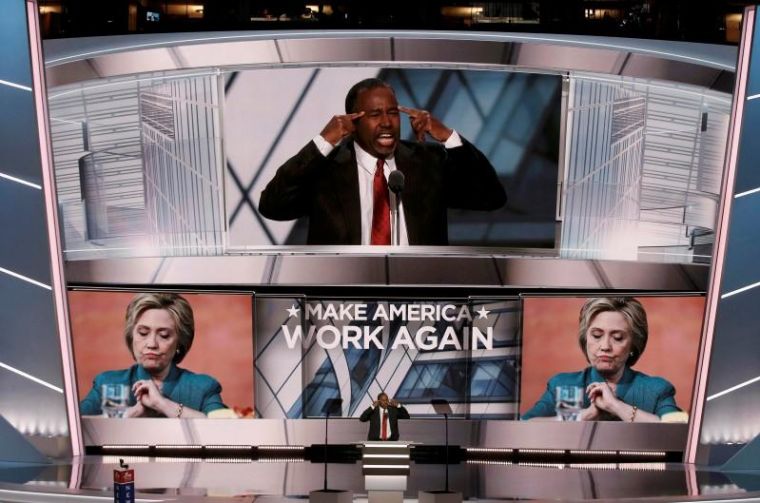Ben Carson defends comment connecting Hillary Clinton to activist who hailed Lucifer

Former Republican presidential candidate Ben Carson defended his comment linking Democratic presidential nominee Hillary Clinton to Chicago-based community organiser Saul Alinsky, who wrote a book on activism in 1971 where he mentioned Lucifer.
In 1969 when Clinton was still Hillary Rodham and a student at Wellesley College, her undergraduate thesis was about Alinsky, CNN reports.
In the dedication page of his book titled "Rules for Radicals: A Practical Primer for Realistic Radical," Alinsky wrote, "Lest we forget at least an over-the-shoulder acknowledgment to the very first radical: from all our legends, mythology, and history (and who is to know where mythology leaves off and history begins — or which is which), the first radical known to man who rebelled against the establishment and did it so effectively that he at least won his own kingdom — Lucifer."
Speaking on CNN's "New Day" show co-anchored by Chris Cuomo, Carson said his comment was aimed at giving perspective on what type of a president Clinton would be.
"Recognise that this is a very famous book—'Rules for Radicals'—and on the dedication page, you acknowledge Lucifer in an admirable way, saying he's the original radical who gained his own kingdom," said Carson. "What I am saying is that we are talking about electing to the presidency an individual who embraces someone who obviously is not someone who is consistent."
During the Republican National Convention on Tuesday, Carson told the audience, "Let me tell you something about Saul Alinsky."
"He wrote a book called 'Rules for Radicals.' On the dedication page, it acknowledges Lucifer, the original radical who gained his own kingdom. So are we willing to elect someone as president who has as their role model someone who acknowledges Lucifer?" he asked.
During the CNN interview, Carson said it is troublesome that Clinton considered Alinsky her mentor.
"She believed that at that time. And now you look at her actions. You look at what she advocates ... those are pretty consistent, quite frankly. We all have people who are our mentors. We all have people that we admired as a college student. At Wellesley, she was on a first name basis with Saul Alinsky. He offered her a job after she finished, but she decided to go to law school. They were very close," he said.
According to Politifact, Alinsky's book does not include any discussion on Lucifer or Satan.
"The epigraph strikes us as more of a provocative literary comment rather than direct advocacy for Satanism. Alinsky seems to be acknowledging Lucifer only in a figurative sense, rather than a religious or devotional sense," the website said.











